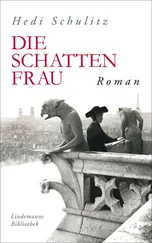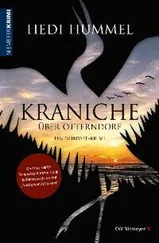Hedi Kaddour - Waltenberg
Здесь есть возможность читать онлайн «Hedi Kaddour - Waltenberg» весь текст электронной книги совершенно бесплатно (целиком полную версию без сокращений). В некоторых случаях можно слушать аудио, скачать через торрент в формате fb2 и присутствует краткое содержание. Год выпуска: 2009, Издательство: Vintage, Жанр: Современная проза, на английском языке. Описание произведения, (предисловие) а так же отзывы посетителей доступны на портале библиотеки ЛибКат.
- Название:Waltenberg
- Автор:
- Издательство:Vintage
- Жанр:
- Год:2009
- ISBN:нет данных
- Рейтинг книги:3 / 5. Голосов: 1
-
Избранное:Добавить в избранное
- Отзывы:
-
Ваша оценка:
- 60
- 1
- 2
- 3
- 4
- 5
Waltenberg: краткое содержание, описание и аннотация
Предлагаем к чтению аннотацию, описание, краткое содержание или предисловие (зависит от того, что написал сам автор книги «Waltenberg»). Если вы не нашли необходимую информацию о книге — напишите в комментариях, мы постараемся отыскать её.
Waltenberg
Waltenberg — читать онлайн бесплатно полную книгу (весь текст) целиком
Ниже представлен текст книги, разбитый по страницам. Система сохранения места последней прочитанной страницы, позволяет с удобством читать онлайн бесплатно книгу «Waltenberg», без необходимости каждый раз заново искать на чём Вы остановились. Поставьте закладку, и сможете в любой момент перейти на страницу, на которой закончили чтение.
Интервал:
Закладка:
Hedi Kaddour
Waltenberg
For Lucienne and Habib Kaddour
Chapter 1. 1914, The Charge
In which the French cavalry is observed launching an assault on German dreams.
In which Hans Kappler remembers Lena Hotspur and the time when she took singing lessons with Madame Nietnagel.
In which Max Goffard defers his entrance and denounces toy machine guns.
In which a French commanding officer begins to speak of Africa and tells of a duel.
In which Alain-Fournier dies.
Our dreams come to grief on the reef of dusk
When the dogs of day and the wolves of night
Do bloody battle for the light.
Robert MarteauMonfaubert, 4 September 1914
The jay has stopped its screeching. Hans has the tip of a sabre against his belly, a lightly curved sabre. The man who holds the sabre has a very pale, young face.
The blade trembles. There are other men behind him, on horseback, also young, red breeches, dark blue tunics, crested helmets: French dragoons.
Here in this wood?
But the front is fifty kilometres south.
The rabbits.
Hans does not cry out, he is ashamed of not crying out. Standing, arms raised, filled with such fear as he never felt before, he sees the rabbits he was watching only moments ago flee in the evening air, about fifteen grey rabbits which had rolled on the ground and climbed all over each other, with a hop and skip and a flash of white bobtail, coupling casually, all happening too far away to be able to tell male from female. ‘Anyway, according to Saint Maxence,’ Johann had just told him, ‘they are incorrigible sodomites.’
Johann had slid to the ground, his neck half severed by a French dragoon.
Hans and Johann had stumbled into an enemy ambush at the edge of a wide clearing while they were out on evening patrol, or more precisely out for a stroll, pipes filled with Virginia tobacco, swallows overhead, earnestly arguing in the still-warm air fragrant with the scent of mown grass.
Hans was watching the clouds, seeing shapes in them, and he began talking about a woman he had loved. Breasts as soft as turtle doves, he kept glancing down at them as she sat in front of him drinking her bowl of chocolate. She had disappeared, I was even told she was dead, it’s not true, she can’t be, the first time I saw her she’d just let the door slam behind her as she walked into the dining room of a large hotel, not out of carelessness or bad manners, it was the unaffected action of an American, utterly straightforward, a German girl wouldn’t have dared, nor even a French girl, she’d just let it slam, she didn’t need to do that to attract attention, no, it was done very simply, because if the door wasn’t capable of closing itself quiedy, hotel porters or no hotel porters, it was nothing to do with her, she had enough on her plate being a beautiful woman obliged to walk into a full dining room unescorted, and she had absolutely no wish to wait for some man to come along who would make the most of his opportunity to smile at her.
She was wearing a dark blue dress, shoulders held very straight, I never understood why she disappeared, one evening I came back from an outing, and she’d gone, left no address, I couldn’t make it out but I should have known, something stupid had happened, I’ll tell you about it if I have the energy.
White shoulders, long red hair, contralto voice, she was studying singing, she wanted to sing the The Lovely Miller Girl and Winter Journey, I told her they were both written for male voices, but that didn’t bother her, musically it could be very interesting, a woman’s voice singing a man’s pain, the effect could be even more powerful, less expressive was how she put it, pure music and beyond the music, emotion, purified; it was all a bit complicated to follow but when she started singing Das Wandern, it was superb, it was anything but a march, you can’t march to it, too many silences in the melody, if you take it at strict march tempo you drown out the silences, if you try it trippingly on the quavers you’ll jounce, and if you do it with crotchets it’s too heavy, no, not really a march at all, more like a draft outline of a march. But I won’t bore you with the details.
It’s the song a young miller sings as he sets out to meet life, as he goes forward to meet the girl from the mill, he’s marching along, it’s delightful, a repeating round, a new element, the gurgle of the stream, even the stones are part of the round, the piano pushes on ahead, starting the round again each time, and each time there’s a fresh energy, all right, I’ll leave it there.
O Wandern, Wandern, meine Lust, a real pleasure, you should have heard Lena say Lust, that’s why she wanted to sing a man’s song, so she could say Lust in her woman’s voice: pleasure. It was superb, O Wandern, meine Lust.
Hans sings, rather off key, flattening the notes and the intervals between them, she said that lust is much stronger in English, almost crude, at least it is when a woman says it, she loved it, singing a man’s word in German which in her own language was almost crude, lust, she jumbled all this up and laughed and then untangled it all again when she sang. I’ll stop now, I’m positive she isn’t dead, she’s gone to the other side of the ocean, gone home.
Johannn listened, paid the white shoulders, breasts soft as turtle doves and red hair the measured tribute that a man owes to his friend’s girl. They were at war, this was men’s talk and it grew stronger and more direct as the distance increased between them and the kind of life where a man needed to be discreet about what was called the inner self, that inner life which these days tended to be spread out for all to see, blood, guts and all, at the first salvo from the enemy’s cannon.
Their talk deepened as the regiment moved from one staging post to the next, Namur, Charleroi, Saint-Quentin, Landrecies, Chauny, Fontenoy, Monfaubert, they talked about women with decreasing coyness but were never foul-mouthed, each making it clear that, however desirable his friend’s girl was, he was not about to pat her on the behind.
The friend feels a growing urge to tell him she has an attractive behind, and on occasions his hand might even trace a curve in the pink and blue air of the clearing. Then, the friend being Johann, he acquiesces as he tracks the hand with his eyes, says a dreamy oof! even if the movements of his own hands over a woman’s hindquarters are normally much more specific, more exploratory, more decisive than the graceful curves which Hans draws against the sky; he says oof! in passing acknowledgement of the girl’s beauty, even if he’s never seen her, as was the case with Johann who in peacetime would never have got friendly with this girl Hans kept telling him about for hours on end, until he was dreaming of her with his eyes open, tracing curves in the air with his hand.
And Johann would indicate that he had a very clear picture of the girl’s shoulders, hips, buttocks, legs, that he understood exactly how exquisite it all was, and the swell of her breasts, soft as a dove’s; he didn’t agree about the turtle doves, he thought of them as being grey but he wasn’t going to upset his friend, and anyway white doves do exist, a delicate white, he could see the girl clearly if he opened his eyes wide and then raised them to the sky, where the world regains something of its innocence.
Hans feels hot, Johann looks admiring, dreamy, he is one whom destiny has kept and will forever keep well away from the breasts and hindquarters of Madame Lena Hotspur, his friend’s girl who has disappeared, and disappeared in the most mysterious circumstances.
Читать дальшеИнтервал:
Закладка:
Похожие книги на «Waltenberg»
Представляем Вашему вниманию похожие книги на «Waltenberg» списком для выбора. Мы отобрали схожую по названию и смыслу литературу в надежде предоставить читателям больше вариантов отыскать новые, интересные, ещё непрочитанные произведения.
Обсуждение, отзывы о книге «Waltenberg» и просто собственные мнения читателей. Оставьте ваши комментарии, напишите, что Вы думаете о произведении, его смысле или главных героях. Укажите что конкретно понравилось, а что нет, и почему Вы так считаете.












